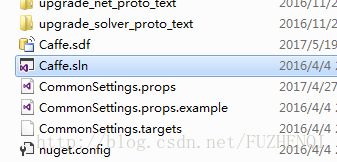- MyBatis——基于MyBatis注解的学生管理程序
基础较差的cs菜鸟
JavaEE实验mybatisjavamysql
MyBatis——基于MyBatis注解的学生管理程序Resourcedao层pojo层utils层测试层实验要求 本实验要求根据学生表在数据库中创建一个s_student表,根据班级表在数据库中创建一个c_class表,班级表c_class和学生表s_student是一对多的关系。实验内容表1学生表(s_student)学生编号(id)学生名称(name)学生年龄(age)所属班级(cid)1
- 如何保证 Redis 缓存与数据库双写一致性?
凌志学java
后端数据库缓存redis数据库
在做系统优化时,想到了将数据进行分级存储的思路。因为在系统中会存在一些数据,有些数据的实时性要求不高,比如一些配置信息。基本上配置了很久才会变一次。而有一些数据实时性要求非常高,比如订单和流水的数据。所以这里根据数据要求实时性不同将数据分为三级。第1级:订单数据和支付流水数据;这两块数据对实时性和精确性要求很高,所以不添加任何缓存,读写操作将直接操作数据库。第2级:用户相关数据;这些数据和用户相关
- 景联文科技提供高质量文本标注服务,驱动AI技术发展
景联文科技
科技人工智能
文本标注是指在原始文本数据上添加标签的过程,这些标签可以用来指示特定的实体、关系、事件等信息,以帮助计算机理解和处理这些数据。文本标注是自然语言处理(NLP)领域的一个重要环节,它通过为文本的不同部分提供具体的含义和上下文信息,增强机器学习和深度学习模型对文本内容的理解能力。标注类型情感分析情感极性:确定文本表达的情感倾向,如正面、负面或中立。强度评估:衡量情感的强烈程度,从轻微到极端不等。命名实
- Python 用户账户(让用户拥有自己的数据)
钢铁男儿
Python从入门到精通python数据库sqlite
Web应用程序的核心是让任何用户都能够注册账户并能够使用它,不管用户身处何方。在本章中,你将创建一些表单,让用户能够添加主题和条目,以及编辑既有的条目。你还将学习Django如何防范对基于表单的网页发起的常见攻击,这让你无需花太多时间考虑确保应用程序安全的问题。然后,我们将实现一个用户身份验证系统。你将创建一个注册页面,供用户创建账户,并让有些页面只能供已登录的用户访问。接下来,我们将修改一些视图
- Python 用户账户(让用户能够输入数据)
钢铁男儿
Python从入门到精通python数据库sqlite
Web应用程序的核心是让任何用户都能够注册账户并能够使用它,不管用户身处何方。在本章中,你将创建一些表单,让用户能够添加主题和条目,以及编辑既有的条目。你还将学习Django如何防范对基于表单的网页发起的常见攻击,这让你无需花太多时间考虑确保应用程序安全的问题。然后,我们将实现一个用户身份验证系统。你将创建一个注册页面,供用户创建账户,并让有些页面只能供已登录的用户访问。接下来,我们将修改一些视图
- IDC权威认证!永洪科技入选 IDC「GBI图谱」,点亮生成式 BI 价值灯塔
永洪科技
科技人工智能BI大数据数据分析
大数据市场正在稳步前进,生成式AI已成为厂商服务的重点方向,其发展离不开数据底座建设和数据工程管理,反过来AI也会帮助开发运维人员、业务人员和管理层更好地使用、查询数据。IDC调研数据显示,在生成式AI的驱动下,未来5年企业在数据管理和数据分析基础设施建设的投资增长率将分别达到8.7%和9.2%。近日,国际咨询机构IDC发布了《中国数据智能市场生态图谱V5.0》,在这一领域,永洪科技以其创新前沿的
- 【QT入门】qmake和cmake的简单区别
不吃~香菜
QT入门qt开发语言学习qmakecmake
声明:该专栏为本人学习Qt知识点时候的笔记汇总,希望能给初学的朋友们一点帮助(加油!)往期回顾:【QT入门】Windows平台下QT的编译过程-CSDN博客【QT入门】VS2019+QT的开发环境配置-CSDN博客【QT入门】VS2019和QTCreator如何添加第三方模块-CSDN博客【QT入门】qmake和cmake的简单区别qmake和cmake是两种常用的构建工具,用于自动化构建C++项
- C# 派生 详解
千亦学不会编程
c#java开发语言
1.1派生继承设计的目的:经常需要扩展现有类型来添加功能(行为和数据)。定义派生类要在类标识符后添加冒号,接着添加基类名称。注意:1.通过继承,基类的每个成员都出现在派生类构成的链条中。2.除非明确指定基类,否则所有类都默认从object派生。写法:publicclassContact:PdaItem{}
- 端到端的NLP框架(Haystack)
deepdata_cn
NLP自然语言处理人工智能
Haystack是一个端到端的NLP框架,专门用于构建基于文档的问答系统,是实现RAG的理想选择。它提供了数据预处理、文档存储、检索和生成等一系列组件,支持多种语言模型和检索器。提供可视化界面,方便用户进行配置和调试;支持多模态数据,可处理文本、图像等多种类型的数据;具有可扩展性,可根据需求添加自定义组件。2020年在自然语言处理技术快速发展,对高效、易用且灵活的端到端NLP框架需求日益增长的背景
- 读书笔记五 ---大数据之路--数仓分层
qq_38215991
bigdata大数据
数据分层在流式数据模型中,数据模型整体上分为五层。ODS层跟离线系统的定义一样,ODS层属于操作数据层,是直接从业务系统采集过来的最原始数据(进行了数据清洗),包含了所有业务的变更过程,数据粒度也是最细的。在这一层,实时和离线在源头上是统一的,这样的好处是用同一份数据加工出来的指标,口径基本是统一的,可以更方便进行实时和离线问数据比对。例如:原始的订单变更记录数据、服务器引擎的访同日志。(原始数据
- C#自定义曲线便器功能实现(简化版)
Big_潘大师
C#c#曲线编辑器贝塞尔曲线
目录一、曲线编辑器实现功能二、实现方法说明三、关键代码说明1、绘制背景板和曲线2、绘制坐标系面板3、绘制曲线四、工程下载连接一、曲线编辑器实现功能添加或者删除控制点,通过移动控制点来修改曲线形状二、实现方法说明1、坐标系系统:使用0-500的范围映射到屏幕坐标系自动绘制网格线(间隔50单位)坐标轴显示在左侧和底部2、控制点功能:左键点击空白区域添加新控制点拖动现有控制点调整位置自动按X坐标排序保持
- Tenacity(Python的坚韧重试库)
ftpeak
Pythonpython开发语言网络爬虫
概述Tenacity是一个基于Apache2.0协议的通用重试库,用Python编写,旨在简化向任何代码添加重试逻辑的过程。它起源于已停止维护的retrying库的分叉版本。Tenacity不兼容retrying的API,但新增了大量功能并修复了长期存在的错误。文档:Tenacity—Tenacitydocumentation主页:https://github.com/jd/tenacity核心功
- FreeRTOS从入门到实战精通指南(一)
niuTaylor
RTOS学习与实战单片机嵌入式硬件RTOSFREERTOS
FreeRTOS从入门到实战精通指南一、核心知识体系搭建1.FreeRTOS架构全景图硬件层FreeRTOS内核核心模块任务管理内存管理通信机制队列信号量事件组中断管理调度器二、关键概念深度解析1.抢占式调度vs中断特性抢占式调度中断触发机制软件触发(调度器决策)硬件触发(外设请求)响应速度微秒级(依赖任务切换时间)纳秒级(硬件直接响应)执行上下文任务上下文中断上下文典型应用场景任务优先级管理硬件
- Spring的JavaWeb三层架构
可问 可问春风
JAVASSM框架spring架构java
Spring三层架构的核心注解及协作在Spring的JavaWeb三层架构中,通过分层注解实现职责分离和组件管理,各层(表现层、业务层、数据访问层)的协作基于组件扫描和依赖注入(DI)机制。以下是各层的核心注解及其协作关系:1.分层架构与对应注解层级职责注解关联技术表现层处理用户请求,返回响应@Controller/@RestControllerSpringMVC,RESTfulAPI业务层实现业
- Maven插件学习(一)——生成可执行的 JAR 文件
螺旋小蜗
mavenjarmaven插件学习
默认打包生成的jar是不能够直接运行的,因为带有main方法的类信息不回添加到manifest中(打开jar文件中META/MANIFEST.MF文件,将无法看到Main-Class行)maven-shade-plugin插件生成可运行的jar文件,该插件会自动将依赖包生成到jar包中。maven-assembly-plugin插件生成可运行的jar文件,需要配置属性jar-with-depend
- Golang可选参数实践
yzh_1346983557
golang可选参数
背景:go不支持类似java的方法重载,但对于函数的可选参数和默认参数配置,通常要在不影响不破坏现有逻辑基础上进行参数的添加。实现:通过options选项,使用函数进行参数的初始化和可选值的设置。代码:packagemainimport"fmt"//go实现可选参数实践//背景:go不支持方法重载,但对于函数的可选参数和默认参数配置,通常要在不影响不破坏现有逻辑基础上进行参数的添加//实现:通过o
- 微服务SpringCloud配置Gateway网关
weixin_46088323
springcloud微服务gateway
微服务SpringCloud配置Gateway网关1.新建Modulecloud-gateway-gateway95272.pom文件添加修改org.springframework.cloudspring-cloud-starter-gatewayorg.springframework.cloudspring-cloud-starter-netflix-eureka-client3.yml文件配置
- 【go】Go中错误包装的最佳实践与常见误区
还没入门的大菜狗
golang
Go中错误包装的最佳实践与常见误区通过分析100-go-mistakes-master/src/07-error-management/49-error-wrapping/main.go中的代码,我们可以总结有关错误包装的典型错误、最佳实践和选择准则。一、错误包装的基本概念错误包装是指在处理错误时,将原始错误封装在新的错误中,同时添加上下文信息。代码示例展示了四种不同的错误处理方式,每种都有不同的
- Windows端口转发命令
windows
命令介绍Windows从Windows2000开始就提供了最基本的端口转发功能,是基于Windows的IPHelper服务的,不仅可以提供端口转发功能,还可以通过将IPv4和IPv6的不同地址的数据进行转发,但是只可以转发TCP协议,暂不支持UDP协议,使用netshinterfaceportproxy命令即可开启。添加端口转发netshinterfaceportproxyaddv4tov4lis
- 【以太网RDMA网卡功能分析和网卡架构】
中古传奇
IC每日一题RDMA架构
2以太网RDMA网卡功能分析和网卡架构【博客首发于微信公众号《漫谈芯片与编程》,欢迎专注一下,多谢大家】标准以太网卡只具备物理层串并转换、数据链路层以太网帧头封装和解析、DMA等功能,无法支持RDMA的通信原语和传输方式等,因此需要专用的以太网RDMA网卡在兼容标准以太网卡功能的基础上增加对RDMA功能的支持;对于RDMA通信原语,如应用程序下发的WRITE请求,网卡需要DMA从用户空间中取出要写
- 基于QScriptEngine的简单解释器
有追求的菜鸟
qt解释器模式
需求:voidDataFormatPipline::DataFormatPipline(QMapdata,QStringListtarger){}data中保存元素数据,类似Fe-1.2,Cu-2.4,Mn3.5,QStringList中的为Fe/Cu,Fe/Cu-Mn,Fe*Cu+Mn,如何利用解释器或者其它简单的方法完成这个需求?解决方案:现在项目中添加scriptQT+=corescript
- spring MVC 介绍
LCY133
spring后端springmvcjava
SpringMVC是Spring框架中用于构建Web应用的核心模块,基于MVC设计模式(Model-View-Controller)实现。以下是其核心概念的整理:1.MVC设计模式•Model(模型):封装业务数据和业务逻辑(如POJO对象、Service层)。•View(视图):负责数据展示(如JSP、Thymeleaf、HTML)。•Controller(控制器):接收请求,调用业务逻辑,返回
- springboot 项目如何提高并发量
LCY133
spring后端springbootjava后端
提升基于SpringBoot的Web项目并发量需要从应用优化、数据库调优、缓存策略、异步处理、水平扩展等多方面综合改进。以下是具体方案和实践建议:一、应用层优化1.代码性能优化•避免阻塞操作:减少同步锁、长事务、大文件处理等耗时操作。•优化SQL查询:避免N+1查询,使用索引,减少全表扫描。•复用对象:避免频繁创建大对象(如JSON解析工具),使用线程安全对象池。2.线程池配置•调整Web服务器线
- 高级交换与路由技术【1.1】
BinaryStarXin
网络工程师提升计划3网络工程师提升计划4网络服务器linux运维多生成树协议MSTP信息与通信网络协议
1.3扩展知识1.保护端口(ProtectedPort)概述在某些应用环境下,要求一台交换机上的有些端口之间不能互相通信。在这种环境下,通过设置保护口(ProtectedPort)实现这些端口之间拒绝单播帧、多播帧、广播帧的链路层通信,这些端口之间只有通过三层设备进行通信。保护端口之间无法通信,保护端口与非保护端口之间可以通信,如图1.3所示。只能实现同一台交换机的相同VLAN内的端口链路层通信隔
- 关于forward函数
oioz
深度学习
定义forward函数是模型的核心前向传播逻辑,定义了输入数据如何在模型中传递和计算。它将输入数据通过模型的各层(如卷积层、全连接层等),计算出模型的输出。作用负责模型的主要计算逻辑。在训练和验证过程中都会被调用。特点必须实现:在PyTorch中,forward函数是模型的核心部分,必须显式定义。灵活性高:可以根据模型需要,自由定义forward函数的内容,包括各种计算操作。示例(PyTorch)
- CEF 控制台添加一函数,枚举 注册的供前端使用的CPP交互函数有哪些
清水迎朝阳
CEF应用CEF交互注入函数注册CPP
一、前序知识1、设置单进程模式,方便调试voidClientApp::OnBeforeCommandLineProcessing(constCefString&process_type,CefRefPtrcommand_line){if(process_type.empty()){//cef在debug模式下有问题#ifdef_DEBUGcommand_line->AppendSwitchWith
- 卷积神经网络Batch Normalization的作用
arron8899
cnnbatch人工智能
BatchNormalization的作用(通俗版)1.像“稳定器”一样校准每层输入想象你在烤多层蛋糕,每层蛋糕的烘烤温度不同(相当于神经网络的每一层数据分布不同)。没有BN时,烤箱温度忽高忽低,导致有的层烤焦(梯度爆炸),有的层不熟(梯度消失)。BN的作用相当于给每一层装了一个自动温度调节器,实时将输入数据调整到标准温度(均值为0,方差为1),保证每层都能均匀受热,训练更稳定。2.让模型训练“少
- C语言程序配置搭建提纲
oicola
c语言开发语言编辑器c++
C、C++语言程序配置搭建提纲一、环境准备安装编译器选择合适的C语言编译器,如MinGW(包含GCC)或MSVC。从官方渠道下载并安装,确保安装过程中选择正确的组件(如MinGW的GCC或MSVC的“桌面开发withC++”工作负载)。安装代码编辑器推荐使用VisualStudioCode(VSCode),从官网下载并安装。配置环境变量将编译器的路径添加到系统的环境变量PATH中。对于MinGW,
- 【蓝桥杯】真题 2386染色时间 (优先队列BFS)
遥感小萌新
蓝桥杯蓝桥杯宽度优先职场和发展
思路这里每一个格子染色多了时间这一层限制,相当于图的每一边有了权重的限制,那么我们就不能直接用双向队列求最短路。而是使用优先队列。规则是这样的:每一个节点可以多次入队,但是只有第一次出队有效。所以这次我们不会在加入队列时更改标签vis,而是在出队时更改标签。如果在出队时发现vis已经更改,这说明这个元素以前出过队列(不是第一次出队),则直接continuecode我们额外设置两个数组,vis标签数
- 3(三) Jmeter参数化-正则表达式提取器
夜晚打字声
工具jmeter正则表达式
先说一个简单的参数化,正则表达式提取器的用处使用场景是这样的,我们两个请求,分别是展示地址和删除地址,删除地址的请求参数中,有一个参数为id,该id为展示地址时返回的id。我们要从展示地址接口的返回报文中拿id,放到删除地址的请求参数中来,这时候就需要用到正则表达式提取器。下面说一下实战操作。因为每次地址是新添加的,所以每次的地址id都不同,在添加后将改地址进行删除,所以我们为了循环这套业务流,我
- JVM StackMapTable 属性的作用及理解
lijingyao8206
jvm字节码Class文件StackMapTable
在Java 6版本之后JVM引入了栈图(Stack Map Table)概念。为了提高验证过程的效率,在字节码规范中添加了Stack Map Table属性,以下简称栈图,其方法的code属性中存储了局部变量和操作数的类型验证以及字节码的偏移量。也就是一个method需要且仅对应一个Stack Map Table。在Java 7版
- 回调函数调用方法
百合不是茶
java
最近在看大神写的代码时,.发现其中使用了很多的回调 ,以前只是在学习的时候经常用到 ,现在写个笔记 记录一下
代码很简单:
MainDemo :调用方法 得到方法的返回结果
- [时间机器]制造时间机器需要一些材料
comsci
制造
根据我的计算和推测,要完全实现制造一台时间机器,需要某些我们这个世界不存在的物质
和材料...
甚至可以这样说,这种材料和物质,我们在反应堆中也无法获得......
- 开口埋怨不如闭口做事
邓集海
邓集海 做人 做事 工作
“开口埋怨,不如闭口做事。”不是名人名言,而是一个普通父亲对儿子的训导。但是,因为这句训导,这位普通父亲却造就了一个名人儿子。这位普通父亲造就的名人儿子,叫张明正。 张明正出身贫寒,读书时成绩差,常挨老师批评。高中毕业,张明正连普通大学的分数线都没上。高考成绩出来后,平时开口怨这怨那的张明正,不从自身找原因,而是不停地埋怨自己家庭条件不好、埋怨父母没有给他创造良好的学习环境。
- jQuery插件开发全解析,类级别与对象级别开发
IT独行者
jquery开发插件 函数
jQuery插件的开发包括两种: 一种是类级别的插件开发,即给
jQuery添加新的全局函数,相当于给
jQuery类本身添加方法。
jQuery的全局函数就是属于
jQuery命名空间的函数,另一种是对象级别的插件开发,即给
jQuery对象添加方法。下面就两种函数的开发做详细的说明。
1
、类级别的插件开发 类级别的插件开发最直接的理解就是给jQuer
- Rome解析Rss
413277409
Rome解析Rss
import java.net.URL;
import java.util.List;
import org.junit.Test;
import com.sun.syndication.feed.synd.SyndCategory;
import com.sun.syndication.feed.synd.S
- RSA加密解密
无量
加密解密rsa
RSA加密解密代码
代码有待整理
package com.tongbanjie.commons.util;
import java.security.Key;
import java.security.KeyFactory;
import java.security.KeyPair;
import java.security.KeyPairGenerat
- linux 软件安装遇到的问题
aichenglong
linux遇到的问题ftp
1 ftp配置中遇到的问题
500 OOPS: cannot change directory
出现该问题的原因:是SELinux安装机制的问题.只要disable SELinux就可以了
修改方法:1 修改/etc/selinux/config 中SELINUX=disabled
2 source /etc
- 面试心得
alafqq
面试
最近面试了好几家公司。记录下;
支付宝,面试我的人胖胖的,看着人挺好的;博彦外包的职位,面试失败;
阿里金融,面试官人也挺和善,只不过我让他吐血了。。。
由于印象比较深,记录下;
1,自我介绍
2,说下八种基本类型;(算上string。楼主才答了3种,哈哈,string其实不是基本类型,是引用类型)
3,什么是包装类,包装类的优点;
4,平时看过什么书?NND,什么书都没看过。。照样
- java的多态性探讨
百合不是茶
java
java的多态性是指main方法在调用属性的时候类可以对这一属性做出反应的情况
//package 1;
class A{
public void test(){
System.out.println("A");
}
}
class D extends A{
public void test(){
S
- 网络编程基础篇之JavaScript-学习笔记
bijian1013
JavaScript
1.documentWrite
<html>
<head>
<script language="JavaScript">
document.write("这是电脑网络学校");
document.close();
</script>
</h
- 探索JUnit4扩展:深入Rule
bijian1013
JUnitRule单元测试
本文将进一步探究Rule的应用,展示如何使用Rule来替代@BeforeClass,@AfterClass,@Before和@After的功能。
在上一篇中提到,可以使用Rule替代现有的大部分Runner扩展,而且也不提倡对Runner中的withBefores(),withAfte
- [CSS]CSS浮动十五条规则
bit1129
css
这些浮动规则,主要是参考CSS权威指南关于浮动规则的总结,然后添加一些简单的例子以验证和理解这些规则。
1. 所有的页面元素都可以浮动 2. 一个元素浮动后,会成为块级元素,比如<span>,a, strong等都会变成块级元素 3.一个元素左浮动,会向最近的块级父元素的左上角移动,直到浮动元素的左外边界碰到块级父元素的左内边界;如果这个块级父元素已经有浮动元素停靠了
- 【Kafka六】Kafka Producer和Consumer多Broker、多Partition场景
bit1129
partition
0.Kafka服务器配置
3个broker
1个topic,6个partition,副本因子是2
2个consumer,每个consumer三个线程并发读取
1. Producer
package kafka.examples.multibrokers.producers;
import java.util.Properties;
import java.util.
- zabbix_agentd.conf配置文件详解
ronin47
zabbix 配置文件
Aliaskey的别名,例如 Alias=ttlsa.userid:vfs.file.regexp[/etc/passwd,^ttlsa:.:([0-9]+),,,,\1], 或者ttlsa的用户ID。你可以使用key:vfs.file.regexp[/etc/passwd,^ttlsa:.: ([0-9]+),,,,\1],也可以使用ttlsa.userid。备注: 别名不能重复,但是可以有多个
- java--19.用矩阵求Fibonacci数列的第N项
bylijinnan
fibonacci
参考了网上的思路,写了个Java版的:
public class Fibonacci {
final static int[] A={1,1,1,0};
public static void main(String[] args) {
int n=7;
for(int i=0;i<=n;i++){
int f=fibonac
- Netty源码学习-LengthFieldBasedFrameDecoder
bylijinnan
javanetty
先看看LengthFieldBasedFrameDecoder的官方API
http://docs.jboss.org/netty/3.1/api/org/jboss/netty/handler/codec/frame/LengthFieldBasedFrameDecoder.html
API举例说明了LengthFieldBasedFrameDecoder的解析机制,如下:
实
- AES加密解密
chicony
加密解密
AES加解密算法,使用Base64做转码以及辅助加密:
package com.wintv.common;
import javax.crypto.Cipher;
import javax.crypto.spec.IvParameterSpec;
import javax.crypto.spec.SecretKeySpec;
import sun.misc.BASE64Decod
- 文件编码格式转换
ctrain
编码格式
package com.test;
import java.io.File;
import java.io.FileInputStream;
import java.io.FileOutputStream;
import java.io.IOException;
import java.io.InputStream;
import java.io.OutputStream;
- mysql 在linux客户端插入数据中文乱码
daizj
mysql中文乱码
1、查看系统客户端,数据库,连接层的编码
查看方法: http://daizj.iteye.com/blog/2174993
进入mysql,通过如下命令查看数据库编码方式: mysql> show variables like 'character_set_%'; +--------------------------+------
- 好代码是廉价的代码
dcj3sjt126com
程序员读书
长久以来我一直主张:好代码是廉价的代码。
当我跟做开发的同事说出这话时,他们的第一反应是一种惊愕,然后是将近一个星期的嘲笑,把它当作一个笑话来讲。 当他们走近看我的表情、知道我是认真的时,才收敛一点。
当最初的惊愕消退后,他们会用一些这样的话来反驳: “好代码不廉价,好代码是采用经过数十年计算机科学研究和积累得出的最佳实践设计模式和方法论建立起来的精心制作的程序代码。”
我只
- Android网络请求库——android-async-http
dcj3sjt126com
android
在iOS开发中有大名鼎鼎的ASIHttpRequest库,用来处理网络请求操作,今天要介绍的是一个在Android上同样强大的网络请求库android-async-http,目前非常火的应用Instagram和Pinterest的Android版就是用的这个网络请求库。这个网络请求库是基于Apache HttpClient库之上的一个异步网络请求处理库,网络处理均基于Android的非UI线程,通
- ORACLE 复习笔记之SQL语句的优化
eksliang
SQL优化Oracle sql语句优化SQL语句的优化
转载请出自出处:http://eksliang.iteye.com/blog/2097999
SQL语句的优化总结如下
sql语句的优化可以按照如下六个步骤进行:
合理使用索引
避免或者简化排序
消除对大表的扫描
避免复杂的通配符匹配
调整子查询的性能
EXISTS和IN运算符
下面我就按照上面这六个步骤分别进行总结:
- 浅析:Android 嵌套滑动机制(NestedScrolling)
gg163
android移动开发滑动机制嵌套
谷歌在发布安卓 Lollipop版本之后,为了更好的用户体验,Google为Android的滑动机制提供了NestedScrolling特性
NestedScrolling的特性可以体现在哪里呢?<!--[if !supportLineBreakNewLine]--><!--[endif]-->
比如你使用了Toolbar,下面一个ScrollView,向上滚
- 使用hovertree菜单作为后台导航
hvt
JavaScriptjquery.nethovertreeasp.net
hovertree是一个jquery菜单插件,官方网址:http://keleyi.com/jq/hovertree/ ,可以登录该网址体验效果。
0.1.3版本:http://keleyi.com/jq/hovertree/demo/demo.0.1.3.htm
hovertree插件包含文件:
http://keleyi.com/jq/hovertree/css
- SVG 教程 (二)矩形
天梯梦
svg
SVG <rect> SVG Shapes
SVG有一些预定义的形状元素,可被开发者使用和操作:
矩形 <rect>
圆形 <circle>
椭圆 <ellipse>
线 <line>
折线 <polyline>
多边形 <polygon>
路径 <path>
- 一个简单的队列
luyulong
java数据结构队列
public class MyQueue {
private long[] arr;
private int front;
private int end;
// 有效数据的大小
private int elements;
public MyQueue() {
arr = new long[10];
elements = 0;
front
- 基础数据结构和算法九:Binary Search Tree
sunwinner
Algorithm
A binary search tree (BST) is a binary tree where each node has a Comparable key (and an associated value) and satisfies the restriction that the key in any node is larger than the keys in all
- 项目出现的一些问题和体会
Steven-Walker
DAOWebservlet
第一篇博客不知道要写点什么,就先来点近阶段的感悟吧。
这几天学了servlet和数据库等知识,就参照老方的视频写了一个简单的增删改查的,完成了最简单的一些功能,使用了三层架构。
dao层完成的是对数据库具体的功能实现,service层调用了dao层的实现方法,具体对servlet提供支持。
&
- 高手问答:Java老A带你全面提升Java单兵作战能力!
ITeye管理员
java
本期特邀《Java特种兵》作者:谢宇,CSDN论坛ID: xieyuooo 针对JAVA问题给予大家解答,欢迎网友积极提问,与专家一起讨论!
作者简介:
淘宝网资深Java工程师,CSDN超人气博主,人称“胖哥”。
CSDN博客地址:
http://blog.csdn.net/xieyuooo
作者在进入大学前是一个不折不扣的计算机白痴,曾经被人笑话过不懂鼠标是什么,



